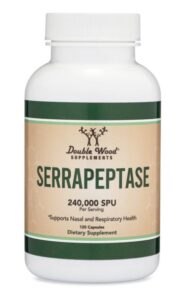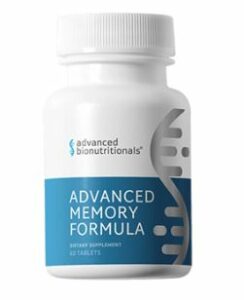
Let’s take a look at the best supplements for uterine fibroids, supplements are a more natural way to reduce the symptoms.
Uterine fibroids are benign growths or tumours consisting of fibrous tissue and muscle, twenty percent of women will develop uterine fibroids in between menstruation and the menopause.
Women over the age of 30 may experience the symptoms of uterine fibroids.
Some have had success at shrinking uterine fibroids using supplements, so what are the best supplements for uterine fibroids.?
Supplements for treating uterine fibroids should only be used with the advice of licensed naturopath or a health care practitioner, support for the best supplements for uterine fibroids is available online at Good Health Naturally here.
What are uterine fibroids exactly?
Uterine fibroids are linked to the production of oestrogen, they usually start to develop in women from as young as age 16 right up to age 50, there are five principle types:
• Cervical
• Sub mucosal
• Pedunculated
• Intramural
• Subserosal
Symptoms of uterine fibroids
The most common symptoms and signs are heavy or very painful periods, constipation, abdominal pain, painful intercourse or frequent urination.
Other symptoms that are caused by large fibroids are frequent urination and pelvic pain.

Photo by Tamara Bellis on Unsplash
Severity of symptoms
The severity of symptoms and the impact on your daily life are the two main considerations is deciding what treatment is best for you.
For example are your symptoms keeping you from going to work? are you forced to go to hospital on a regular basis or visit your doctor? are you struggling with your normal daily life?
There are other considerations to think about for example would you like to have a child? how close are you to the menopause? did you know that fibroids can shrink following the menopause in some cases they can disappear altogether.
However until the menopause has passed uterine fibroids may continue to grow or regrow even after they have been removed.
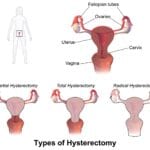 Hysterectomy
Hysterectomy
Women who are finished with having any more children often opt for a hysterectomy or removal of the uterus, this procedure means that upon removal of the uterus fibroids can no longer form.
However a traditional hysterectomy is considered to be a major surgery, the surgeon will have to make a large incision in the abdomen.
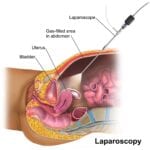 Laparoscopic hysterectomy
Laparoscopic hysterectomy
The procedure laparoscopy hysterectomy is followed by a process labelled power morcellation where a device is used to slice the uterus into small pieces allowing them to be removed through the tiny incisions.
Just to point out the FDA made a recommendation to limit this method (power morcellation) because there was a small chance that during surgery to remove uterine fibroids a woman may have uterine cancer that was undiagnosed.
It was thought that there was a risk of the procedure spreading the cancer right through the pelvis and abdomen, the FDA were alerted to the possibility of this happening following a much publicized case involving of a hospital anesthesiologist Doctor Amy Reed.
Heavy bleeding treatment options
Heavy bleeding can wear you out and cause a serious lack of energy, women who feel that a hysterectomy is too much for them have other options both medical and surgical.
There are medications that will slow the heavy bleeding by making the blood clot, the endometrium is a lining in the uterus birth control pills thin the endometrium and valuable nutrients are lost during a period.
There are medications that help with the symptoms however they don’t act on the underlying issue.
Surgery for heavy bleeding
A surgical procedure called hysteroscopic myomectomy is an option where an endoscope (a thin tube) is put through the cervix directly into the uterus, it removes the fibroid leaving the uterus unharmed.
If a woman doesn’t want to conceive again she has the option of endometrial ablation where the endometrium is wiped out altogether either by heat or by cold.
Uterine fibroids reduction
Treatment is available when fibroids cause symptoms such as pelvic pain or persistent urinating, medication treatment like GNRh agonists are effective at shrinking fibroids, the problem is once they are gone the treatment stops and they grow back again, this type o drug is not recommended for long time use.
The uterine fibroids can be reduced by myomectomy a procedure where a large incision is made in the abdomen, the fibroids are reduced in size without reducing the woman’s ability to conceive, on the vegetative side the fibroids can grow back.
Artery embolization is another procedure whereby the blood supply that feeds the fibroids is cut off making them shrink and perish. The chances of having a baby are higher following a myomectomy compared to embolization.
MRI guided ultrasound
In recent times an MRI guided ultrasound surgery have become a popular method to shrink fibroids using ultrasound waves and lessen heavy menstrual bleeding.
Which is the best treatment for you?
There are many options available to you in shrinking uterine fibroids but which is the best treatment for you?
Talk to your doctor, each treatment has its pros and cons you have to decide what you want these are the questions you should be asking yourself
• What are the pros and cons of each treatment?
• What are the risks?
• Which treatment removes fibroids permanently?
• Which treatment enhances my chances of getting pregnant?
Supplements for uterine fibroids
What are the best supplements for uterine fibroids?
Scientific evidence is thin on the ground when it comes to proving that supplements shrink uterine fibroids however one study showed that Vitamin D may help.
Serrapeptase a natural enzyme was shown in this study to be effective in dissolving fibroids.
We do need further studies to establish the efficacy of certain supplements in the treatment of uterine fibroids safety and long term use, until then we are limited to testimonials of women who have had success with supplements.
Over on Good Health Naturally there is s quality uterine support pack containing many natural supplements that are classed as having the potential to reduce or shrink uterine fibroids such as;
• Complete uterine fibroid solution
• Organic supplements for fibroid
• Fibro blend
• Herbal support for fibroids
• Oestrogen control
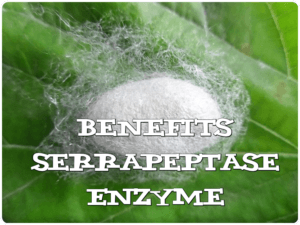 Recommended supplement
Recommended supplement
Serrapeptase is a wonderful natural enzyme it has been in existence for more than years, used throughout the world for inflammation, swelling and pain.
In recent times Serrapeptase has shown itself to be well capable of dissolving fibroids much like it dissolves the cocoon surrounding the silkworm.
Serrapeptase is a well tolerated supplement with very few side effects, it comes in tablet form and can be purchased in doses from 40,000 IU up to the strongest dose of 250,00p iu. IU means international units a measurement common in all countries
What dosage for uterine fibroids?
Depending on the size of the fibroids a dosage of not less than 80,000 IU is recommended to start with, you can take up to three of these per day or more depending on the manufacturers specifications.
 How long before you see results?
How long before you see results?
If you take the prescribed dose on an empty stomach, the fibroids should start to reduce after one month however it could take anywhere from 1-6 months of regular dosage to get rid of uterine fibroids altogether.
Serrapeptase works well for blocked fallopian tubes a condition similar to uterine fibroids, in this case Serrapeptase dissolves the fibroids that are causing a blockage in the fallopian tubes.
Get advice
Uterine fibroids don’t produce side effects during pregnancy for most women, but a review in 2010 reported that uterine fibroids cause complications during pregnancy.
The size of the fibroids(more than 5 cm) has a large bearing on the complications such as pain during the last 2 trimesters.
Drug interactions
Before you purchase a supplement for uterine fibroids check for any interactions with any prescribed drug that you are taking.
I highly recommend that you take a close look at the best supplements for uterine fibroids on the Good Health Naturally website by clicking here.
References
https://www.ncbi.nlm.nih.gov/pmc/articles/PMC5790697/

